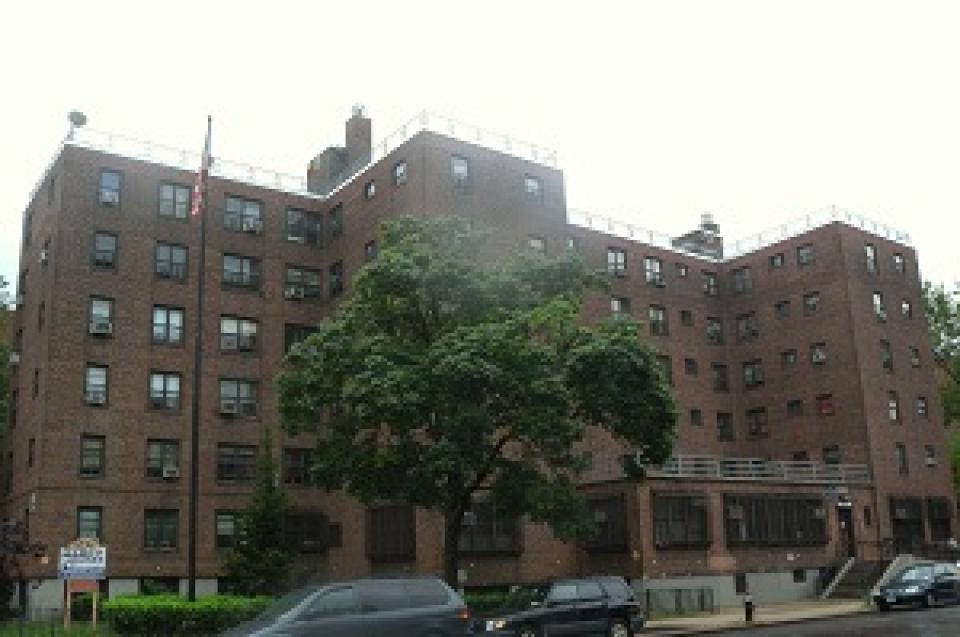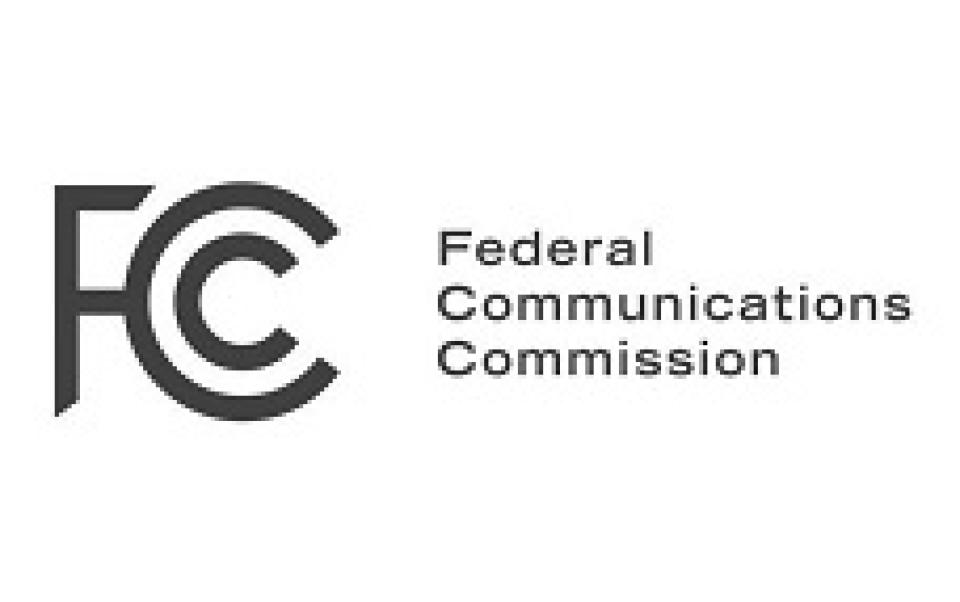
Fast, affordable Internet access for all.

In this episode of the Connect This! Show, co-hosts Christopher and Travis Carter (USI Fiber) are joined by Jessica Engle (IT Director for the Yurok Tribe) and Matthew Rantanen (Director of Technology, Southern California Tribal Chairmen's Association) to talk about broadband in Indian Country.
The panel discusses the realities of deploying wired and wireless broadband infrastructure on tribal lands, and what the Yurok tribe has learned along the way in overcoming challenges and working with partners and vendors to expand access in efficient but sustainable ways.
During the hour, Matt, Jess, Travis, and Christopher also talk about the $1 billion Tribal Broadband Connectivity Program to be administered by the National Telecommunications and Information Administration (NTIA), the long history of underinvestment by incumbent providers in Indian County, and how communities can position themselves to succeed in the context of local conditions in pursuing long-term solutions.
Subscribe to the show using this feed, or visit ConnectThisShow.com
Email us broadband@muninetworks.org with feedback and ideas for the show.
Watch here, or below.
The pandemic exacerbated extreme economic, racial, and social disparities that have long characterized New York City neighborhoods. When the pandemic hit, the "City That Never Sleeps" experienced the worst single-year job decline since the 1930s, with communities of color bearing the brunt of the disease itself in addition to the rising levels of unemployment, lack of affordable housing, and food insecurity it brought on.
Aiming to alleviate these deeply-entrenched challenges, New York City Mayor Bill de Blasio formed the Taskforce on Racial Inclusion and Equity last April to survey community organizations in NYC districts most severely impacted by COVID-19. As that work got underway, taskforce co-chair Deputy Mayor Phil Thompson kept hearing a resounding call for access to the Internet. Three months into the pandemic, de Blasio reported that 18 percent of all New Yorkers, more than 1.5 million city residents, had neither a home or a mobile connection, mainly due to issues of affordability.
In response to the public outcry, Mayor de Blasio set to work enacting New York City’s Internet Master Plan, starting with a $157 million initiative which will direct public and private investment to fund broadband infrastructure and expand low-cost or no-cost Internet access to 600,00 New Yorkers, including 200,000 city residents living in public housing, within 18 months.

As Mayors must concern themselves with everything from public safety and health to the development of the local economy and the provision of essential municipal services, they tend to have a particular focus on the infrastructure necessary to support it all, amid a cacophony of competing interests.
Over the summer, having reached consensus on the fundamental importance of “the digital infrastructure of tomorrow,” a particular focus of the United States Conference of Mayors 88th National Annual Meeting was to issue a resolution declaring the necessity of “Preserving Local Public Rights-of-Way and Regulatory Authority to Most Effectively Deploy 5G Broadband Access and Bridge the Digital Divide during the COVID-19 Pandemic.”

The Mayors’ resolution comes in response to the Federal Communications Commission’s (FCC's) 2018 preemption of local governments’ authority to regulate 5G infrastructure in their cities.
At the heart of the regulatory debate: local governments’ ability to determine the amount of fees to charge mobile carriers that want to place 5G equipment in Rights-of-Way. In addition to putting limits on those fees, the FCC Order also sets strict timelines by which cities and towns must respond to carrier applications. The FCC decision, issued over the objections of industry observers and policy experts, essentially eliminates local communities’ ability to negotiate in order to protect their own Rights-of-Way and the poles, traffic lights, and other potential structures within those Rights-of-Way.
Preempting Local Authority
Last December we wrote about Connecticut’s long-awaited victory by court affirmation in the fight to let its cities attach to utility poles at no cost in pursuit of spurring municipal broadband efforts. A similar effort seems to have stalled in its neighbor to the north, with HD 4492 languishing in the Massachusetts Legislature’s Telecommunications, Utilities and Energy Committee.
The bill, “An Act To Establish Municipal Access To Utility Poles Located In Municipal Rights-Of-Way,” is simple. It modifies Chapter 166, Section 22a of the state’s General Laws to eliminate pole attachment fees for cities working to build broadband networks to reach “unserved or underserved areas” (as defined by the Massachusetts Broadband Institute (MBI)), shifting the expense instead to the current pole owner(s). John Barrett introduced the bill and two dozen fellow legislators co-signed it. It calls for:
Notwithstanding any provision of law to the contrary, for the purpose of safeguarding access to infrastructure essential to public health, safety and welfare, an owner of a shared-use pole and each entity attaching to that pole is responsible for that owner's or entity's own expenses for make-ready work to accommodate a municipality's attaching its facilities to that shared-use pole: a) For a governmental purpose consistent with the police power of the municipality; or b) For the purpose of providing broadband service to an unserved or underserved area.
Up in the Air
In the city of Fullerton, California (pop. 140,000), privately owned infrastructure builder and operator SiFi Networks has turned on the first section of what will be a city-wide, open access Fiber-to-the-Home network. The project makes Fullerton SiFi’s first FiberCity — a privately built, financed, and operated open access network it plans to duplicate in more cities across the country in the future. When complete next fall, the Fullerton FiberCity network will pass every home and business in the city, with the company's subsidiary, SiFi Networks Operations, selling wholesaling capacity to as many Internet Service Providers (ISPs) as want to enter the market.
A Different Approach

SiFi’s FiberCity model remains somewhat unique in the United States, and is much more common in Europe and Asia. CEO Ben Bawtree-Johnson attributes their success to cracking the economic code for private investment in open access information infrastructure, which has seen more attention in recent years as investors and fund managers have seen opportunities. “[O]ur vision really is to create as many last-mile fiber optic networks as we can across the USA in a long term sustainable fashion,” Bawtree-Jobson remarked on an episode of the podcast last fall. “[W]e're all about long term, dry, low yielding, risk mitigated investments, so everything we do is based around 30-year plus type investments.”
Milwaukee County, Wisconsin, is currently experiencing firsthand the consequences of the Federal Communications Commission’s (FCC's) 2018 preemption of local governments’ authority to regulate 5G infrastructure in their cities. With its initial handful of applications for new small cell transmitters just submitted to the county board by Verizon under the new rules, local officials are grappling with a host of limitations — including fee caps, shorter timing windows, and right of way exemptions — which outline clearly a problem more and more communities will face in the coming months and years.
Less Say, Less Money
We pointed out when the FCC handed down the order in the fall of 2018 that it represented a significant giveaway to wireless carriers while placing additional restrictions and financial burdens on local regulators, most of which are county boards and city departments. Among the most troublesome of the order’s provisions are new 60- and 90-day approval windows for the installation of infrastructure on existing and new wireless facilities, a limitation to annual fee scales for small cell sites set between $100-250, a right now enjoyed by wireless providers to place infrastructure on municipally owned poles and traffic lights, and a rule that says if regulating authorities don’t get to an application within 60 days it automatically becomes approved. The 9th U.S. Circuit Court of Appeals upheld the fee cap in a ruling last Wednesday.

When utilities, including broadband providers, need to cross railroad rights-of-way to serve customers, some railroad operators have been known to press their advantage. Several states have addressed utility complaints by establishing standardized rates and setting up processes to create a more reasonable and predictable system. Eliminating this obstacle to deployment is another step in bringing broadband to the communities that need it the most.
Party Concerns
Often railroads obtained title to real property during 19th century acquisitions as the infrastructure was being built. They want to preserve as much of their authority and title rights as possible and to ensure that they can receive the maximum value for their interest in the land.
For utilities, cost of deployment is a primary concern. When railroads demand unreasonable fees at crossings or drag out negotiations as a delay tactic, they also impinge on a utility’s ability to meet operational deadlines. Safety and engineering integrity can be negatively impacted by difficult negotiations, unreasonable demands, or exorbitant costs.
Different States, Different Stories
Few states have addressed the problem with statutes establishing standard utility fees for railroad right-of-way crossings. David L. Thomas, Managing Member of the strategic utility planning firm Eagle 1 Resources (E1R) has worked with telecommunications companies and other utilities to negotiate railroad crossing arrangements. He's seen that standard crossing fees set down in statute benefit deployment by ending delay and reducing costs and would like to see the trend pass to every state.

Matt Rantanen, director of technology at the Southern California Tribal Chairmen’s Association and director of the Tribal Digital Village Network, has been working for years to get tribal communities connected to broadband. In his conversation with Christopher, he talks about his experience with creative wireless solutions, the potential of the Educational Broadband Service (EBS) to get folks connected, and shifting attitudes around the importance of broadband.
“We’re trying to help solve that rural connectivity problem. America’s got a lot of talented people that live outside the city centers, and they just don’t have access to the resources that they need — and a lot of those people are on reservations. So it’s really important to get those people connected.”
Matt’s newest venture, Arcadian InfraCom, is creating new, diverse fiber paths thanks to innovative partnerships with tribal communities. Phase 1 of their plan, scheduled to be completed in 2022, will connect Salt Lake City to Phoenix and Phoenix to Denver, with add/drop locations within the Navajo Nation and throughout Utah, Colorado, and Arizona.
We talked to Matt previously on Community Broadband Bits episode 76 and on an episode of our Community Connections series. Check out our other stories on tribal lands connectivity here.
This show is 34 minutes long and can be played on this page or via Apple Podcasts or the tool of your choice using this feed.
Transcript below.
We want your feedback and suggestions for the show-please e-mail us or leave a comment below.
Listen to other episodes here or view all episodes in our index. See other podcasts from the Institute for Local Self-Reliance here.
Thanks to Arne Huseby for the music. The song is Warm Duck Shuffle and is licensed under a Creative Commons Attribution (3.0) license.
At a May 6 City Commission meeting in Decatur, Georgia, city leaders approved a project budget of $2.35 million to build a municipal I-Net and award the construction contract to Georgia-based Network Cabling Infrastructures, Inc. The decision came amid demands from cable giant Comcast that the community of about 24,000 immediately begin paying exorbitant fees for infrastructure the city has used under a past local franchise agreement. The case of sour grapes was resolved, but it once again reveals how the large corporate monopolies don't hesitate to flex their muscles when things don't go their way.
Conflict Over I-Net
The infrastructure at the center of the dispute dates back to the late 1990s to a franchise agreement Decatur made with MediaOne, which Comcast has since acquired. As part of the deal, MediaOne agreed to connect city facilities with a fiber network, and the city permitted the cable company to recover some construction costs through a 25 cent charge on subscribers’ monthly bills, up to a total cap of $200,000. MediaOne finished building the I-Net in 2000. Since then, Decatur has used the infrastructure without paying fees to MediaOne or Comcast for critical city operations.
Last year after working with a consultant, Decatur decided to replace the aging I-Net with a new, city owned fiber network and began to search for a contractor to build it. Comcast was one of several companies that responded to a Request for Qualifications (RFQ) issued by Decatur in October, but it did not meet the requirements established by the city.
 Less than one month after Decatur notified Comcast that it was not selected, the company told former City Manager Peggy Merriss that it planned to retire the I-Net right away, unless the city paid for its use. A few months later, Comcast reiterated its intentions to current City Manager Arnold, explaining that the company had acquired a state franchise to replace the local franchise agreement that ended in 2009. According to Arnold, Comcast decided to charge the city approximately $370,000 annually for use of the current I-Net until the new one is built.
Less than one month after Decatur notified Comcast that it was not selected, the company told former City Manager Peggy Merriss that it planned to retire the I-Net right away, unless the city paid for its use. A few months later, Comcast reiterated its intentions to current City Manager Arnold, explaining that the company had acquired a state franchise to replace the local franchise agreement that ended in 2009. According to Arnold, Comcast decided to charge the city approximately $370,000 annually for use of the current I-Net until the new one is built.
Lincoln, Nebraska, home of the University of Nebraska Cornhuskers, will soon boast another fan favorite — a citywide fiber network that will make gigabit speeds available to all residents and businesses.
The City of Lincoln and ALLO Communications, a Nebraska-based Internet service provider (ISP), are approaching the end of the deployment phase of their partnership aimed at building fiber out to every home and business in the city of about 285,000. To expand the fiber network, ALLO has leased access to Lincoln’s extensive conduit system, which hastened the buildout and lowered costs. With only minor construction remaining, all of Lincoln will soon have access to fast, affordable, reliable gigabit connectivity.
In November, ALLO’s President Brad Moline announced that the company would be “substantially done with boring and conduit placement” by the end of 2018. After that step, which is considered the most intrusive of the construction process, ALLO stated that they still needed to connect approximately 3,000 - 4,000 homes to fiber.
City Owned Conduit Leads the Way
Lincoln began its conduit project in earnest in 2012, taking advantage of downtown redevelopment to deploy conduit along public Rights-of-Way. As of 2016, the city had spent approximately $1.2 million building and maintaining the 300-mile-long conduit network.